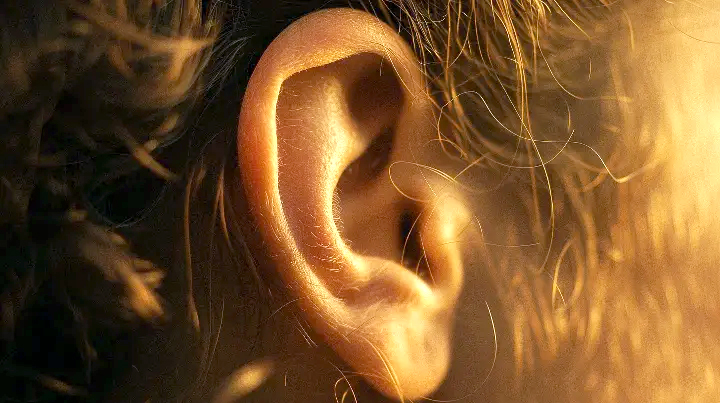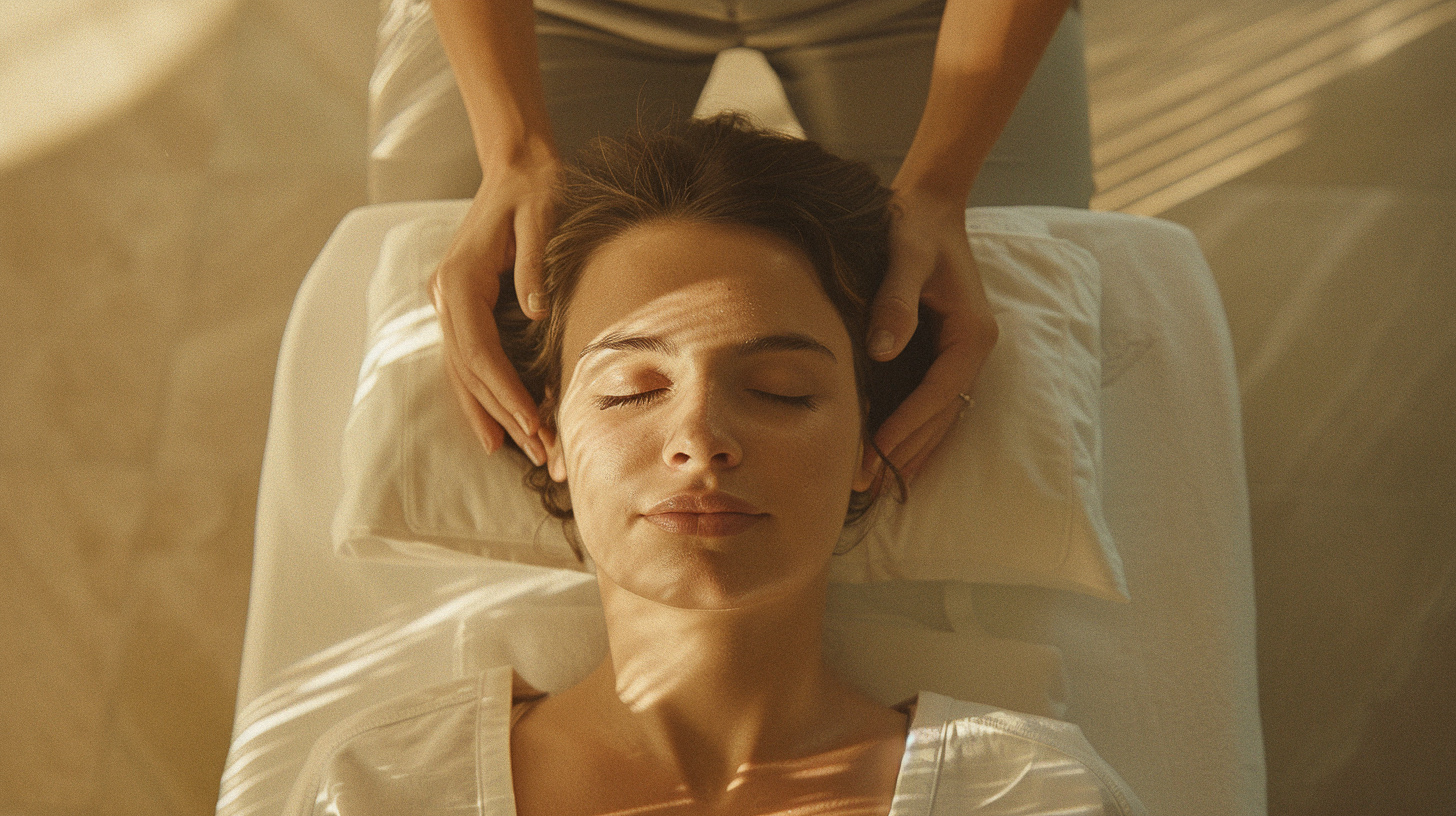What to do about Tinnitus?
Tinnitus – What Can Be Done?
Tinnitus, the constant or recurring noise, buzzing, or ringing in the ear, can be a considerable burden for those affected. Modern tinnitus research has identified a range of self-help and treatment tips that may actively help alleviate and improve tinnitus symptoms. Depending on the cause and accompanying symptoms, there are various strategies that may prove beneficial. However, it is essential to have tinnitus professionally assessed to rule out serious medical conditions.
In this guide, we present some tried-and-tested practical tips. Often, it is also helpful to combine self-help and treatment methods mindfully and observe which approach brings the best individual results.
Tip 1 - Active Stress Management
During stressful times, various systems in our bodies operate at peak performance, and the inner ear becomes highly sensitive under direction from the brain.
In the short term, this makes sense, as it helps us assess threats and respond effectively to danger. However, if stress persists, the inner ear remains overly active, which can lead to tinnitus.
Identify what currently causes stress in your daily life. Good time management and improved organization can reduce stress in both professional and personal life. Chronic worry and anger also create high levels of stress, which can be managed by developing new approaches to challenges, conflicts, and perceived threats. Don’t hesitate to seek professional help if needed.
Aim for a healthy balance between active, stressful periods and restorative times when your body and mind can unwind and rejuvenate.
Regular physical activity in nature, mindful breathing breaks, breathing exercises, meditation, and moments of silence are especially beneficial...

Tip 2 - Endurance Exercise to Combat Stress
Acute and chronic stress can cause or worsen tinnitus, so it’s important to find healthy ways to manage or ideally reduce stress. Endurance sports are highly effective. Activities like jogging, cycling, swimming, or Nordic walking reduce stress hormones like adrenaline and cortisol and boost the release of serotonin, the “happiness hormone.” Just 30 minutes of exercise, three times a week, can improve overall well-being and may also ease tinnitus symptoms. Read more about here.hier mehr.

Tip 3 - Sufficient and Restful Sleep
Good, adequate sleep is essential for the body and mind to recover. A consistent sleep routine and a comfortable sleep environment can help you fall and stay asleep. Avoid caffeine in the afternoon and activities in the evening that might disrupt sleep.
If tinnitus makes falling asleep difficult, soothing background sounds such as soft music or nature sounds may be helpful.

Tip 4 - Address Teeth Grinding and Jaw Issues
Teeth grinding or jaw clenching can cause or worsen tinnitus, often due to stress and tension.
To address this, consider a few different approaches:
- Consult a dentist or orthodontist to assess potential jaw issues (TMJ).
- Gentle physiotherapy and osteopathy can also be helpful.
- dentify any underlying sources of stress or pressure and practice stress management and relaxation techniques.
- Wear ForgTin® regularly during stressful periods to support the parasympathetic nervous system and help with positive stress regulation.

Tip 5 - Hearing Aids for Hearing Loss
If you have hearing loss, a hearing aid may help reduce tinnitus. A customized hearing aid can improve hearing and also reduce the perception of tinnitus. Consult a hearing specialist and inform them about your tinnitus.

Tip 6 - Breathing Exercises
Proper breathing can help relieve stress and relax the body. A simple exercise is to inhale for four seconds and exhale for six seconds. Regular breathing exercises can calm the mind and make tinnitus less intrusive.

Tip 7 - Hearing Protection
Loud noises can damage hearing and worsen tinnitus. Protect your ears during noisy activities like concerts or in loud work environments. Appropriate hearing protection can help prevent tinnitus from worsening over time.

Tip 8 - Actively Prevent and Address Neck Tension
Neck tension often results from poor posture, work strain, degenerative musculoskeletal issues, injuries, or internal/external stress. Often, we worry excessively, “grit our teeth,” or “stiffen our necks”.
Neck and surrounding muscles tighten and may hurt, restricting mobility. Neck tension can also lead to tension in the head, jaw, and forehead, which, over time, can contribute to or worsen tinnitus.
Diagnosis and treatment often focus on the neck, spine, and jaw joint. Muscle function disorders caused by poor posture, particularly in the upper cervical spine, are common. For instance, sports enthusiasts who overtrain with weights in the gym may develop upper neck tension, which can lead to tinnitus.
Accurately identifying the cause allows appropriate self-help measures and treatments to begin.

Tip 9 - Self-Care and Wellness
Stress is a common issue for those with tinnitus. Regularly take time for yourself and do activities that bring you joy. Whether it’s a relaxing bath, a walk in nature, or a massage, self-care can help reduce stress and, in turn, alleviate tinnitus.

Tip 10 - Tinnitus Diary
A tinnitus diary can help identify triggers and improvements. Note fluctuations and potential causes. This can help you recognize patterns and take targeted steps to improve. Use the ForgTin® App as a daily tinnitus diary to learn more about your tinnitus, its triggers, the effectiveness of self-help measures, and the effects of using ForgTin® ear clamps.

Tip 11 - Encouragement and Optimism
Draw inspiration from positive stories of others affected by tinnitus. Many people have learned to live with or even overcome their tinnitus. Connect with support groups or search for success stories online. Attend our ForgTin® talks and take advantage of expert information and exchanges with other affected individualse. Read about the Read about the positive experiences of people whohave successfully relieved or forgotten their tinnitus with ForgTin®.

Tinnitus – What Can Be Done?
Tinnitus, the constant or recurring noise, buzzing, or ringing in the ear, can be a considerable burden for those affected. Modern tinnitus research has identified a range of self-help and treatment tips that may actively help alleviate and improve tinnitus symptoms. Depending on the cause and accompanying symptoms, there are various strategies that may prove beneficial. However, it is essential to have tinnitus professionally assessed to rule out serious medical conditions.
In this guide, we present some tried-and-tested practical tips. Often, it is also helpful to combine self-help and treatment methods mindfully and observe which approach brings the best individual results.
Tip 1 – Active Stress Management
During stressful times, various systems in our bodies operate at peak performance, and the inner ear becomes highly sensitive under direction from the brain.
In the short term, this makes sense, as it helps us assess threats and respond effectively to danger. However, if stress persists, the inner ear remains overly active, which can lead to tinnitus.
Identify what currently causes stress in your daily life. Good time management and improved organization can reduce stress in both professional and personal life. Chronic worry and anger also create high levels of stress, which can be managed by developing new approaches to challenges, conflicts, and perceived threats. Don’t hesitate to seek professional help if needed.
Aim for a healthy balance between active, stressful periods and restorative times when your body and mind can unwind and rejuvenate.
Regular physical activity in nature, mindful breathing breaks, breathing exercises, meditation, and moments of silence are especially beneficial...

Tip 2 – Endurance Exercise to Combat Stress
Acute and chronic stress can cause or worsen tinnitus, so it’s important to find healthy ways to manage or ideally reduce stress. Endurance sports are highly effective. Activities like jogging, cycling, swimming, or Nordic walking reduce stress hormones like adrenaline and cortisol and boost the release of serotonin, the “happiness hormone.” Just 30 minutes of exercise, three times a week, can improve overall well-being and may also ease tinnitus symptoms. hier

Tip 3 – Sufficient and Restful Sleep
Good, adequate sleep is essential for the body and mind to recover. A consistent sleep routine and a comfortable sleep environment can help you fall and stay asleep. Avoid caffeine in the afternoon and activities in the evening that might disrupt sleep.
If tinnitus makes falling asleep difficult, soothing background sounds such as soft music or nature sounds may be helpful.

Tip 4 – Address Teeth Grinding and Jaw Issues
Teeth grinding or jaw clenching can cause or worsen tinnitus, often due to stress and tension.
To address this, consider a few different approaches:
- Consult a dentist or orthodontist to assess potential jaw issues (TMJ).
- Gentle physiotherapy and osteopathy can also be helpful.
- dentify any underlying sources of stress or pressure and practice stress management and relaxation techniques.
- Wear ForgTin® regularly during stressful periods to support the parasympathetic nervous system and help with positive stress regulation.

Tip 5 – Hearing Aids for Hearing Loss
If you have hearing loss, a hearing aid may help reduce tinnitus. A customized hearing aid can improve hearing and also reduce the perception of tinnitus. Consult a hearing specialist and inform them about your tinnitus.

Tip 6 – Breathing Exercises
Proper breathing can help relieve stress and relax the body. A simple exercise is to inhale for four seconds and exhale for six seconds. Regular breathing exercises can calm the mind and make tinnitus less intrusive.

Tip 7 – Hearing Protection
Loud noises can damage hearing and worsen tinnitus. Protect your ears during noisy activities like concerts or in loud work environments. Appropriate hearing protection can help prevent tinnitus from worsening over time.

Tip 8 – Actively Prevent and Address Neck Tension
Neck tension often results from poor posture, work strain, degenerative musculoskeletal issues, injuries, or internal/external stress. Often, we worry excessively, “grit our teeth,” or “stiffen our necks”.
Neck and surrounding muscles tighten and may hurt, restricting mobility. Neck tension can also lead to tension in the head, jaw, and forehead, which, over time, can contribute to or worsen tinnitus.
Diagnosis and treatment often focus on the neck, spine, and jaw joint. Muscle function disorders caused by poor posture, particularly in the upper cervical spine, are common. For instance, sports enthusiasts who overtrain with weights in the gym may develop upper neck tension, which can lead to tinnitus.
Accurately identifying the cause allows appropriate self-help measures and treatments to begin.

Tip 9 – Self-Care and Wellness
Stress is a common issue for those with tinnitus. Regularly take time for yourself and do activities that bring you joy. Whether it’s a relaxing bath, a walk in nature, or a massage, self-care can help reduce stress and, in turn, alleviate tinnitus.

Tip 10 – Tinnitus Diary
A tinnitus diary can help identify triggers and improvements. Note fluctuations and potential causes. This can help you recognize patterns and take targeted steps to improve. Use the ForgTin® app as a daily tinnitus diary to learn more about your tinnitus, its triggers, the effectiveness of self-help measures, and the effects of using ForgTin® ear clamps.

Tip 11 – Encouragement and Optimism
Draw inspiration from positive stories of others affected by tinnitus. Many people have learned to live with or even overcome their tinnitus. Connect with support groups or search for success stories online. Attend our ForgTin® talksand take advantage of expert information and exchanges with other affected individuals. Read about the positive experiences of peoplewho have successfully relieved or forgotten their tinnitus with ForgTin®.

Quick Self-Help Tips

Sleep
Achten Sie auf Ihren
Schlaf. Ist der Schlaf gestört, sind eine ärztliche Abklärung und Diagnostik
der psychischen und der allgemeinen privaten und beruflichen Situation
notwendig.

Skeletal System
Lassen Sie Ihren
Bewegungsapparat untersuchen, z.B. von einem guten Osteopathen. Dysfunktionen
sollten behandelt oder auch eigeninitiativ in Bewegung umgesetzt werden.

Slow Down
Pause. If you’re unwell, ask yourself whether your body is trying to tell you something. We often push forward, strive for productivity, and ignore warning signs. Tinnitus may also offer a chance to make a change.

Mental Well-being
Reflect honestly on the question, “How am I?”. Are you in a situation that supports your well-being, or might a reassessment be needed? Follow up with this question: “Do I need help in an area connected to this, and am I open to it?” or are you continuing as is, even if it isn’t benefiting you?

Sleep
Prioritize sleep. If sleep is disturbed, consult a doctor and assess psychological, private, and work-related situations.

Skeletal System
Have a specialist examine your musculoskeletal system, such as a skilled osteopath. Address any dysfunctions through treatment or self-initiated activity.

Slow Down
Pause. If you’re unwell, ask yourself whether your body is trying to tell you something. We often push forward, strive for productivity, and ignore warning signs. Tinnitus may also offer a chance to make a change.

Mental Well-being
Reflect honestly on the question, “How am I?”. Are you in a situation that supports your well-being, or might a reassessment be needed? Follow up with this question: “Do I need help in an area connected to this, and am I open to it?” or are you continuing as is, even if it isn’t benefiting you?